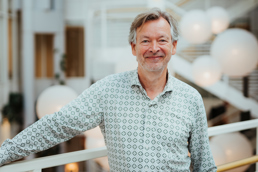What can we learn from a Swedish fashion brand to innovate for a sustainable future?
-
Sist oppdatert
18. september 2023
-
Kategori
-
Tema
- Sustainability
- Green future
- Business models
How can we ensure that innovation leads us to a better future and not a dystopian one?
SCIENCE NEWS FROM KRISTIANIA: Professor Nicholas J. Ind on sustainability
Innovation is both a curse and a blessing. On the one hand, innovation encourages us to consume. We feel we must have that latest version of the smartphone, with all the consequent negatives involved in the mining of the materials inside it and in end-of-life disposal. On the other hand, innovation can help us to contribute to the world and to reduce our impacts.
Our research shows that conscientious businesses can, and do, innovate new products, services and business models, that both appeal to consumers and help reduce consumption impacts. This is not because these businesses are more virtuous than others (although sometimes they are), but rather because they see the potential of innovation to deliver social, environmental and commercial benefits.

Meld deg på vårt nyhetsbrev
Just look at the way Spanish fashion brand, Ecoalf, enables us to buy products made of recyled materials such as used car tyres, coffee grounds and plastic, and support the work of Mediterranean and Thai fishermen to upcycle the oceans through the recovery and reuse of waste.
Conscientious innovation at the core of business
A conscientious approach to innovation is rooted in the belief that by thinking critically about stakeholder needs (including those of the planet) it is possible to do the right thing and to build a profitable business.
Companies, such as Patagonia and Unilever (numbers 1 and 2 on the 2023 GlobeScan/SustainAbility Leadership Survey) adopt this approach because they are driven by a transformative purpose, but they also reap the benefits of more engaged consumers, ecosystem partners and employees.
In this way, conscientious innovation goes beyond traditional approaches to corporate social responsibility and sustainability as adjuncts to business strategy, and makes them core to what the business does. As Alan Jope, CEO of Unilever, notes, the big and escalating challenges of climate change and social inequality "requires business to step up and play a key role."
Businesses must look outwards as well as inwards
To become a conscientious innovator, a business has to look outwards to understand the stakeholders within its ecosystem and inwards to assess its own competencies and resources. In so doing, it needs to assess the role of sustainability in the decision-making of stakeholders and the viability of developing new conscientious business models.
There are different strategies a company can adopt, such as slowing down consumption by enhancing durability and encouraging consumers to change their behaviours, designing circularity into processes, promoting repair, resale and rental, and making social impact integral.
An example of a conscientious innovator is the Swedish fashion brand, Asket. Founded in Stockholm in 2015, Asket had a clear purpose from the outset, which was to enable consumers to live with less, by promoting a limited range of classic, high quality fashion items that would be long-lasting.
The implication of this was that the products had to be researched and tested, supply chains had to be rigorously evaluated, repair and resale offered and total transparency practised as a means of validating quality. When someone purchases an Asket product they get an Impact Receipt, which shows the water, energy and CO2e emitted at the different stages of the production process and the margin made by Asket.
Based on customer research, the receipt also specifies the number of times the product can be expected to be worn.
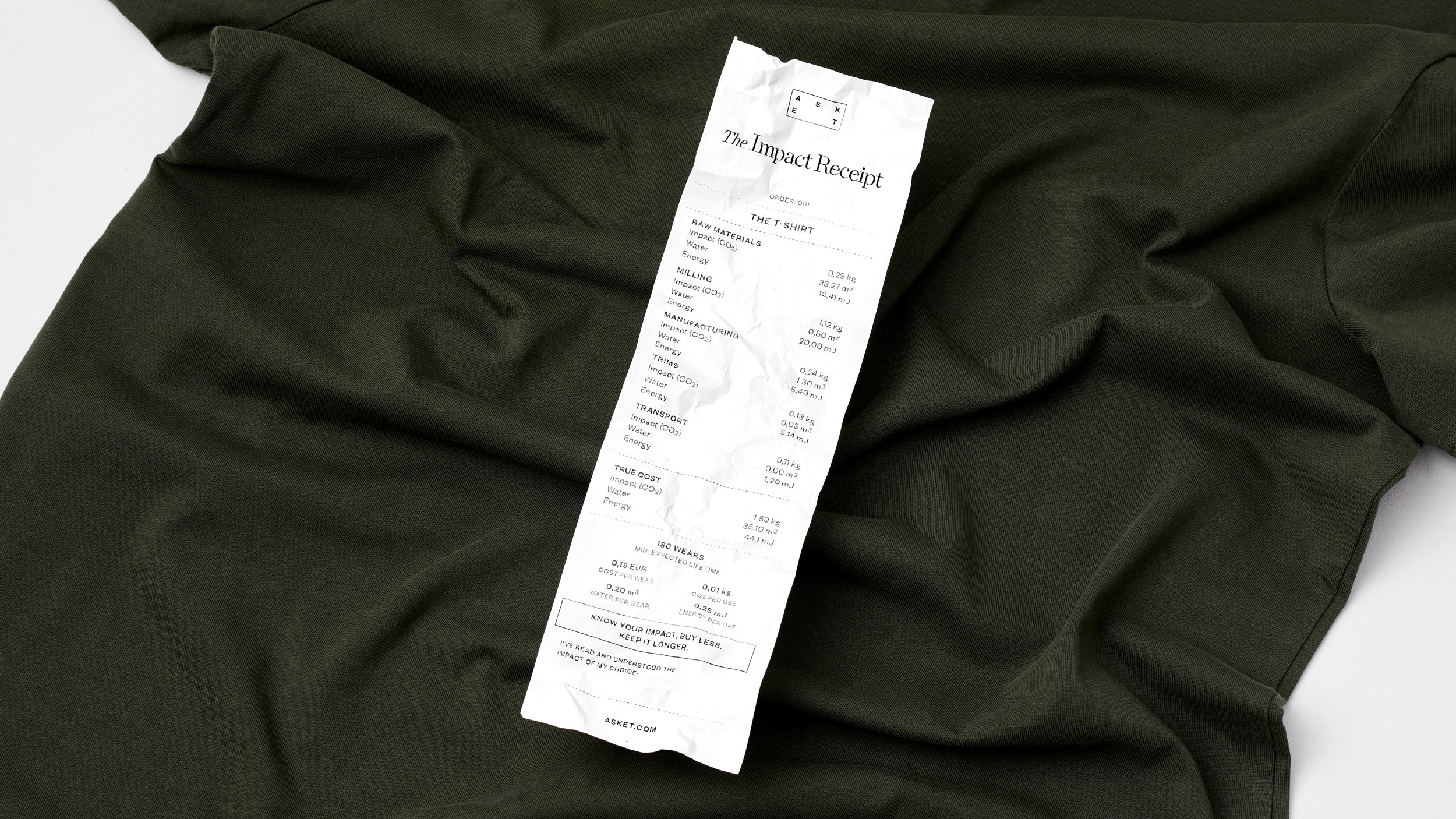
Co-founder August Bard Bringéus says:
"So even if you don't care about social conditions or environmental impact, so long as you're interested in quality goods, you will appreciate that storytelling and knowing where your goods come from. And that's kind of the key driver to helping people live with less also. Once you know the story of your garments, you will appreciate them more."
Getting there
Innovation can be a driver of progress, as long as it a) creates value that strikes a reasonable balance among a company's stakeholders; b) fosters sustainability and helps to regenerate the planet; c) delivers social impact.
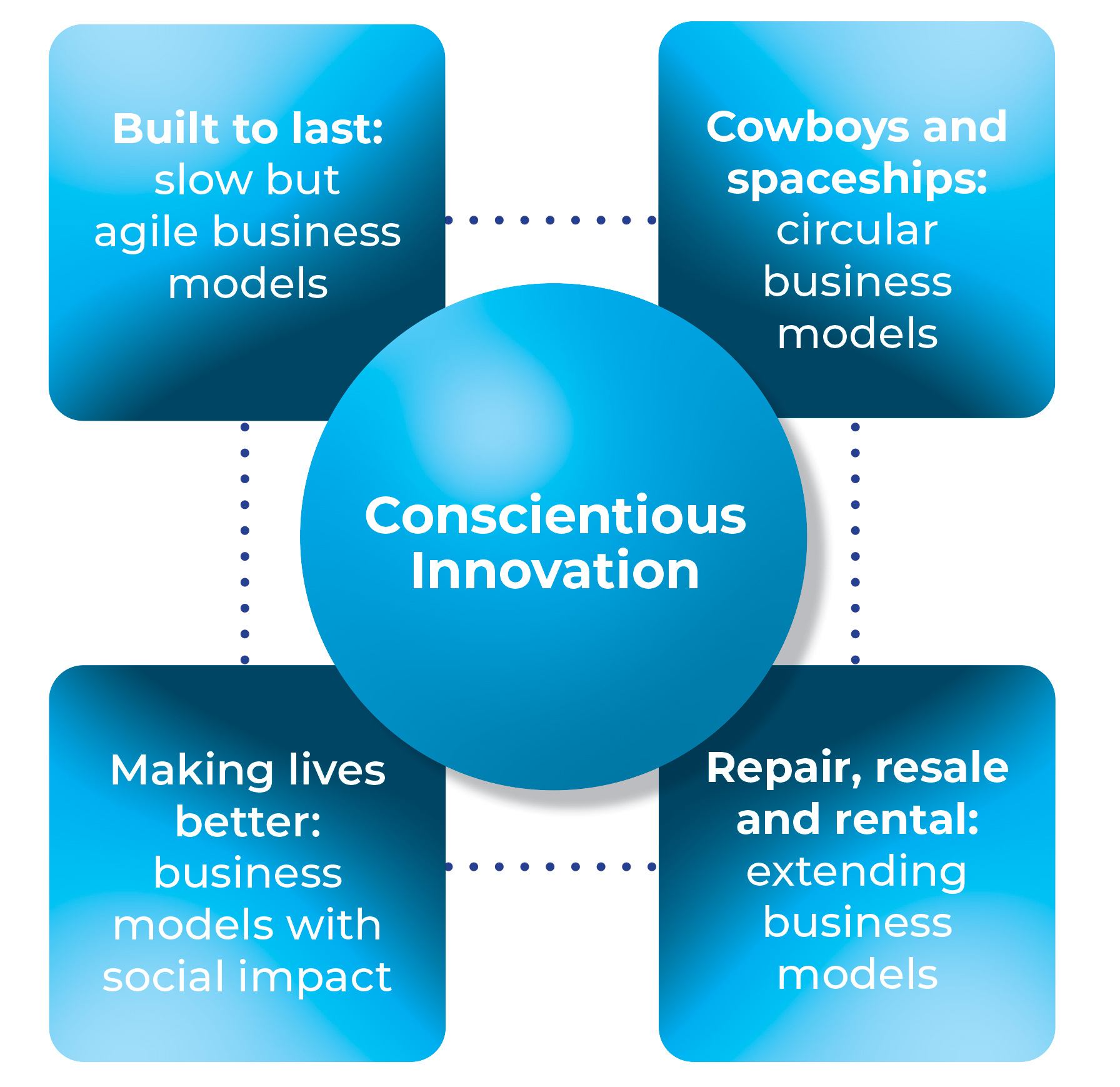
However, there are challenges that have to be tackled. Balancing the needs of stakeholders is not necessarily a win-win and often involves a moral cost: what might seem a win for consumers might be a loss for employees and suppliers. Also, changing consumer behaviour is challenging.
Unilever's Sustainable Living Plan (2010-2020), which involved decoupling growth from environmental impact, was difficult to realise, because around two-thirds of that impact came from consumer usage.
Finally, some stakeholders argue against the involvement of business in social and environmental issues and see only costs and not opportunities. Ranged against the sceptics are businesses that use challenges as inspiration for thinking in new ways and using conscientious innovation as a way of both doing good and generating profit.
References:
- Ind, Nicholas, and Iglesias, Oriol (2022). In Good Conscience: Do the right thing while building a profitable business, Palgrave.
- Baumann-Pauly D (2020) Why Cobalt mining in the DRC needs urgent attention, 29 October 2020, Council on Foreign Relations.
- Lotzok K (2020) Your mobile phone is powered by precious metals and minerals, 7 October 2020, Council on Foreign Relations.
- The Sustainability Institute by ERM: GlobeScan / SustainAbility Survey: 2023 Sustainability Leaders
This text was first published at ScienceNorway.no on the 11th of August 2023 with the following headline "What can we learn from a Swedish fashion brand to innovate for a sustainable future? ".
Author: Professor Nicholas Jonathan Ind, School of Economics, Innoavtion and Technology, Kristiania University College
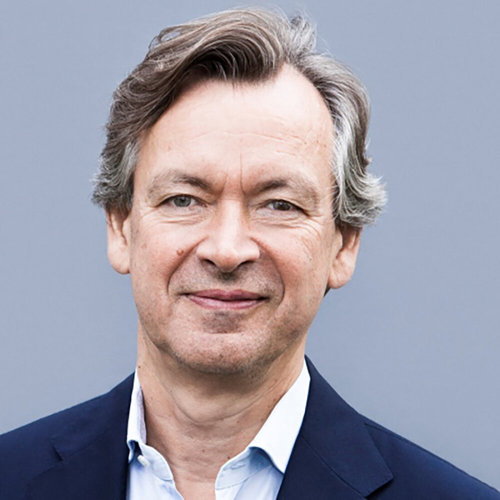
DOGA conference 28th September 2023 - Conscientious Innovation
We love hearing from you:
Send your comments and questions regarding this article by e-mail to kunnskap@kristiania.no.
Siste nytt fra Kunnskap Kristiania
 Kunnskap KristianiaLes mer
Kunnskap KristianiaLes merSlik skjuler reklamen seg i hverdagen din
Hva skjer når du trykker “liker” på en video eller deler noe i sosiale medier?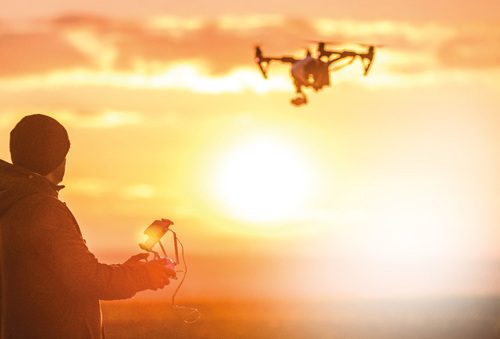 Kunnskap KristianiaLes mer
Kunnskap KristianiaLes merDroner redder liv, men er også sårbare selv
Droner brukes i redningsarbeid og vedlikehold av infrastruktur. Hvordan skal vi beskytte dem mot hacking? Kunnskap KristianiaLes mer
Kunnskap KristianiaLes merRolls-Royce-logikk kan gi tog som nesten aldri står
Tenk deg en verden der fly er i rute og sykehus driftes effektivt. Hvordan får vi det til? Kunnskap KristianiaLes mer
Kunnskap KristianiaLes merFem områder der kunstig intelligens kan påvirke livet ditt
Kunstig intelligens er kommet for å bli. Professor Jon Arild Johannessen skisserer noen fremtidsscenarier.




